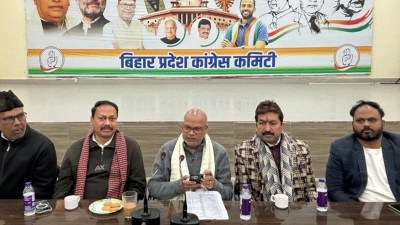Dude, where146;s the film?
Not the judgment of film critics but the passage of time will decide whether Michael Moore8217;s Fahrenheit 9/11 can change the world. Cha...

Not the judgment of film critics but the passage of time will decide whether Michael Moore8217;s Fahrenheit 9/11 can change the world. Change, of course, is the whole purpose. Whatever satisfaction Moore derives from his ever-mounting income and awards, he clearly will consider this picture a success only if it helps drive George W. Bush from office. Voters will write the real review. I can merely fill time until November, with the thought that Fahrenheit 9/11 might be interesting as a movie after it has done its work as politics.
I think there are two bundles of messages in Fahrenheit 9/11, one political and one emotional 8212; and while the first is about as ambiguous as a call to take up pitchforks and torches and storm the castle, the second is too complex to unsettle those in power. It works to unsettle you. It8217;s what makes Fahrenheit 9/11 a real movie. For clarity8217;s sake, then, let8217;s start with the politics: the film8217;s bill of particulars against Bush, and also against the Democratic leadership, which in Moore8217;s view has colluded most shamefully in the misrule the world now suffers. The prologue to Fahrenheit 9/11 revisits Bush8217;s rise to power in late 2000, paying particular attention to the hunched posture of the Democrats who let him step on their backs. Here are Dick Gephardt and Tom Daschle, counseling 8220;acceptance8221; of the non-election; and here is Al Gore, mildly officiating over the Senate session that legitimized the theft of his presidency. For the first time in Fahrenheit 9/11, but certainly not the last, Moore tells his story through borrowed but decidedly nonstock footage, which you most likely have not seen before 8212; in this case, a scene of members of the House, all of them African-American, coming forward to contest the election, while Gore calmly rules their objections inadmissible because no senator, not one, would satisfy Congressional rules by signing on to them.
Moore8217;s antagonists, being Republican, won8217;t go so easy on him. Their attacks will no doubt include the charge that his film is Democratic Party propaganda. You should understand from the preceding the flimsiness of this accusation8212; although it8217;s true that Moore spares us the sight of one notable Democrat, John Kerry, voting to authorize Bush to start a war on his own say-so, at any time that suited him.
Excerpted from an article by Stuart Klawans in 8216;The Nation8217;, July 5 issue
- 01
- 02
- 03
- 04
- 05































